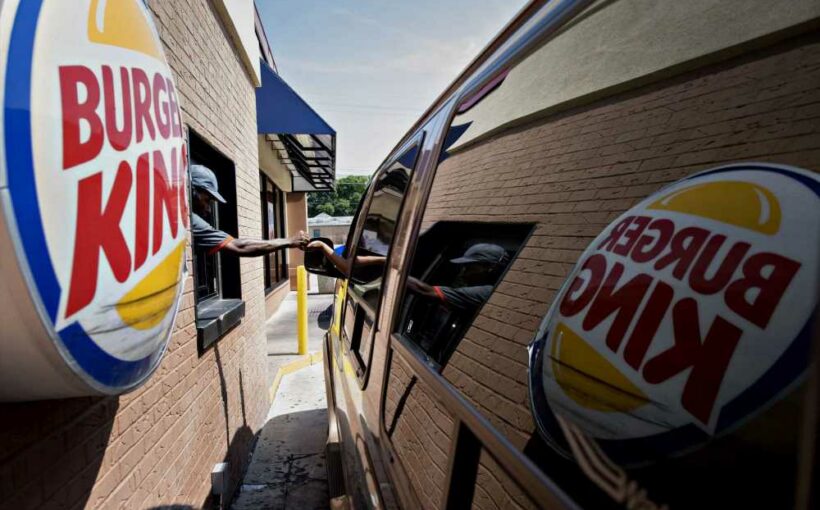- Restaurant Brands International topped Wall Street's estimates for its second-quarter earnings and revenue.
- The company also said that its digital sales have grown nearly 60% compared with the same time a year ago.
- Popeyes was the only one of its brands to report same-store sales declines after facing tough comparisons to last year's strong performance.
In this article
- QSR-CA
Restaurant Brands International on Friday reported quarterly earnings and revenue that topped Wall Street's expectations, fueled in part by strong growth of digital sales in its brands' home markets.
Shares of the company were flat in premarket trading.
Here's what the company reported compared with what Wall Street was expecting, based on a survey of analysts by Refinitiv:
- Earnings per share: 77 cents adjusted vs. 61 cents expected
- Revenue: $1.44 billion vs. $1.36 billion expected
The company reported fiscal second-quarter net income of $391 million, or 84 cents per share, up from $164 million, or 35 cents per share, a year earlier.
Excluding items, Restaurant Brands earned 77 cents per share, topping the 61 cents per share expected by analysts surveyed by Refinitiv.
Net sales rose 37% to $1.44 billion, beating expectations of $1.36 billion. The same time last year, the company's revenue fell 25%, hurt by lockdowns and stay-at-home orders.
This quarter, digital sales jumped almost 60% year-over-year and 15% compared with last quarter across its three brands' domestic markets.
Tim Hortons reported same-store sales growth of 27.6%. A year ago, the Canadian coffee chain saw sales crater 29.3% as consumers stayed home and brewed their own coffee. Out of its parent company's portfolio, Tims has taken the longest to bounce back from the pandemic, hurt by the resurgence of Covid-19 in its home market and a slower pace of vaccinations there.
Burger King's same-store sales rose 18.2% in the quarter. A year ago, it saw the metric fall 13.4%.
Popeyes Louisiana Kitchen was the only brand to report same-store sales declines, although the metric fell by less than 1%. It faced tough comparisons with a year ago, when same-store sales soared 24.8% despite lockdowns. In the United States, its same-store sales fell 2.5%.
The company also announced an increase of its share repurchase authorization to $1 billion over the next two years.
Source: Read Full Article
